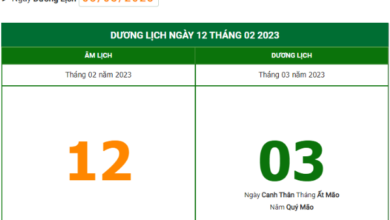Revitalizing Motherhood: Your Post-Pregnancy Care Handbook

The journey into motherhood is an extraordinary and transformative experience, marked by the anticipation of new life, joyous moments, and the profound bond between mother and child.
However, as any new mother will attest, the post-pregnancy period, often referred to as the postpartum period, comes with its unique set of challenges and adjustments.
It’s a time that demands special care and attention, not only for the health and well-being of the newborn but also for the physical and emotional recovery of the mother.
In this comprehensive guide, we delve into the intricacies of post-pregnancy care, offering practical insights and empowering tips to revitalize motherhood during this transformative phase.
Physical Recovery: Nurturing Your Body
1. Rest and Sleep:
The early days and weeks post-pregnancy can be physically demanding as your body recovers from the birthing process.
Adequate rest is crucial during this time. Prioritize sleep whenever your baby is resting, and consider enlisting the support of family or friends to allow you moments of uninterrupted rest. Sleep is not a luxury but a necessity for recovery.
2. Nutrition:
Nourishing your body with a balanced and nutrient-dense diet is paramount for both your recovery and sustaining the energy needed for the demands of motherhood.
Focus on incorporating a variety of fruits, vegetables, lean proteins, and whole grains into your meals. Staying hydrated is equally important, especially if you are breastfeeding.
3. Gentle Exercise:
While strenuous exercise is not recommended immediately postpartum, gentle exercises can aid in recovery.
Activities such as walking, postnatal yoga, and pelvic floor exercises can help improve circulation, strengthen core muscles, and contribute to an overall sense of well-being. Always consult with your healthcare provider before beginning any exercise routine.
4. Ice Pack for Pain Relief:
In addition to prioritizing rest, nutrition, and gentle exercise for post-pregnancy recovery, using an ice pack can be a valuable tool for pain relief. Applying a cold compress to areas of discomfort, such as the perineum after vaginal delivery or the incision site after a cesarean section, can help alleviate swelling and reduce pain.
However, it’s crucial to use the ice pack with a cloth barrier to prevent direct contact with the skin and limit application to short intervals, allowing the skin to rest between uses.
Always consult with your healthcare provider to ensure the safe and proper use of ice packs in your specific postpartum recovery plan.
Emotional Well-being: Nurturing Your Mind
1. Connect with Others:
The emotional toll of pregnancy, childbirth, and the postpartum period can be profound. Connecting with others who have experienced similar journeys can provide invaluable support and insights.
Joining a support group, whether in-person or online, can create a network of understanding individuals who can share advice, experiences, and encouragement.
2. Self-Reflection:
Embrace moments of self-reflection and acknowledgment. The postpartum period often brings a mix of emotions, from the pure joy of new motherhood to moments of doubt and exhaustion.
Accepting and understanding these emotions is an essential part of the post-pregnancy journey.
3. Seek Professional Support:
If feelings of sadness, anxiety, or overwhelm persist, it’s crucial to seek professional support. Postpartum depression is a common condition that affects many new mothers.
Mental health professionals and healthcare providers can offer guidance, therapy, or medication if needed. Prioritizing your emotional well-being is key to revitalizing your motherhood experience.
Bonding with Your Baby: Creating Meaningful Connections
1. Skin-to-Skin Contact:
Building a strong bond with your baby is one of the most beautiful aspects of motherhood.
Embrace skin-to-skin contact, which not only fosters a sense of security for your baby but also regulates their temperature, heart rate, and breathing.
This intimate practice is not only beneficial for the baby but can deepen the connection between you and your newborn.
2. Baby Massage:
Incorporating gentle baby massage into your routine is another way to strengthen the bond with your infant.
The soothing touch not only promotes relaxation but also aids in better sleep. It’s a precious time for both you and your baby to connect through touch and shared moments of tenderness.
3. Create Rituals:
Establishing daily rituals creates a sense of routine and predictability for your baby, fostering a strong emotional connection.
Whether it’s reading a bedtime story, singing a lullaby, or engaging in quiet playtime, these rituals provide comfort and reassurance for your baby while enhancing the bond between you and your little one.

Practical Tips for Daily Life: Streamlining Your Routine
1. Delegate Responsibilities:
Adjusting to the demands of daily life with a newborn can be overwhelming. Delegate responsibilities whenever possible.
Enlist the support of your partner, family members, or friends to share household chores, meal preparation, and baby care duties. A collaborative approach lightens the load and allows you time for self-care.
2. Prioritize Self-Care:
Carving out moments for self-care, no matter how brief, is essential for your well-being. Whether it’s a relaxing bath, a short walk, or a moment of mindfulness, prioritizing self-care contributes to your overall sense of vitality and fulfillment. Remember that taking care of yourself enables you to better care for your baby.
3. Set Realistic Expectations:
Adjusting to the new routine of motherhood takes time. Set realistic expectations for yourself and your baby.
Understand that every day may bring new challenges, and adapting to this new phase is a process. Be patient with yourself and allow room for growth and adjustment.
Conclusion:
The post-pregnancy period is a time of renewal and adaptation, where the focus shifts from the physical demands of pregnancy to the nuanced responsibilities of motherhood. By prioritizing physical recovery, nurturing emotional well-being, creating meaningful connections with your baby, and streamlining your daily routine, you can revitalize your motherhood experience.
Remember that every mother’s journey is unique, and embracing the transformative nature of this period allows you to embark on the path of motherhood with confidence, resilience, and a deep sense of joy. In nurturing yourself, you are not only revitalizing your own well-being but creating a foundation for a lifetime of love and connection with your precious child.



